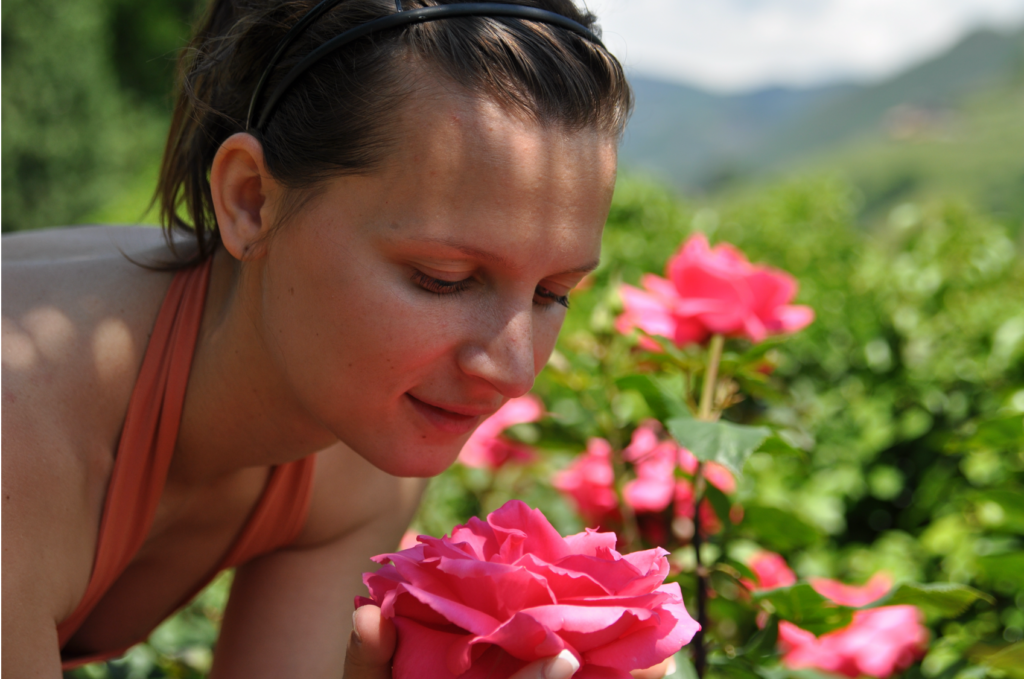By Michael Shook
By the time this is in print, the leaves of the bigleaf maples will have taken on their darker summer look, and depending on how dry things are, they might already have the first dulling of dust covering them. But for now, in June, their leaves, and those of every other plant in sight, are exuberant, shining, and vivid in their myriad shades of green, vibratory in their robustness. Small wonder that spring is the favorite season of so many (for myself, I am unwilling to choose).
Our garden has been roaring along for some weeks now. The rhododendrons are almost bloomed out – Anah Kruschke hangs onto her light purple (a fine old cultivar, and the name brings with it fond memories of an adoptive grandmother from my Enumclaw youth, Granny Klimke). Autumn Gold is full, and r. glanduliferum is just peeking through, its delicate scent barely perceptible. Soon enough, though, I will be enjoying only the foliage and the new growth, all the while scouring the plants for next year’s nascent blooms.
Jude the Obscure rose is covered with blossoms, and will continue to flower through the summer. Sometimes, when I stick my nose in a bloom and inhale deeply, I come away thinking of my mother and my two aunts. All three were avid, accomplished gardeners. They were also – I say this with affection – quite prudish. Raised as they were by an indomitable, very proper mother of conservative Anglican Irish stock, and having little male presence with their father away at sea much of the time, the three girls grew into women who, as my cousin once remarked, astonished themselves and others by actually having children.
So it is with a smile that I contemplate that trio smelling roses. For the truth is, as we know, when one sticks one’s nose into a flower blossom of any sort, one is sticking one’s nose and face into a sex organ. I can say with confidence that neither my mother nor her sisters ever thought of it that way, but there it is. A garden, as much as any facet of nature, is a place of life, which means of course a place of sex, and, as omnipresent as the former two, death. Yes, it’s controlled (to a degree) by our intentional planting and weeding (thus contributing to our illusion that we are separate from nature – somehow outside biology, ha!). But that is simply our willful ignorance of what is right under, and sometimes around, our noses. Life, sex, and death. Let the species be perpetuated!
Speaking of death, years ago I was in the garden with my two young daughters, showing them a crab spider perched on the blossom of a gladiolus. I was explaining to them how the spider could change color to blend in, and that it did not weave a web, but rather depended on its camouflage and a morbid embrace with its powerful front “crab” legs to secure a meal. In the next moment, on cue, a large fly landed on the flower and WHACK!, the spider struck, the fly was held and bitten. It buzzed frantically for a moment before the venom took effect, then was still. We were delighted, and a little aghast.
On another occasion, I was strolling about in the same garden, coffee cup in hand, binoculars hanging from my neck (in case of bird sightings), when a bald-faced hornet zipped by and smashed into a smaller black and yellow hornet (both actually wasps of the yellow-jacket variety, though the bald-faced has nary a bit of yellow). The two tumbled to the ground where a short, furious battle was fought. The bald-faced found a chink in the armour of the smaller, and that was that. The victor then grasped dinner in its legs, ponderously rose straight up (reminding me of a large military helicopter), circled, and flew off. I was again delighted, and again, a little aghast.
The garden is, for me, an ideal place. In addition to life, sex, and death, it’s a sublime location, as lively as can be, within which I ruminate on the mysteries of such liveliness, such loveliness, while simultaneously destroying (weeding), creating (placement and choice of plants), and shaping (pruning, creating hardscape, and long-term design). And digging holes. I do some of my best thinking while digging holes (something I have in common with the Scotties, but that’s a tale for another time).
Additionally, gardening is humbling. Just when I think I really have it nailed, nature shows me otherwise, thus reminding me that biology, in the end, trumps all else. And that I am merely dabbling at the edges of a mystery that has existed, and will exist, for many, many years without my efforts, well-intentioned though they be. It’s a comforting thought. All is well in the garden.

